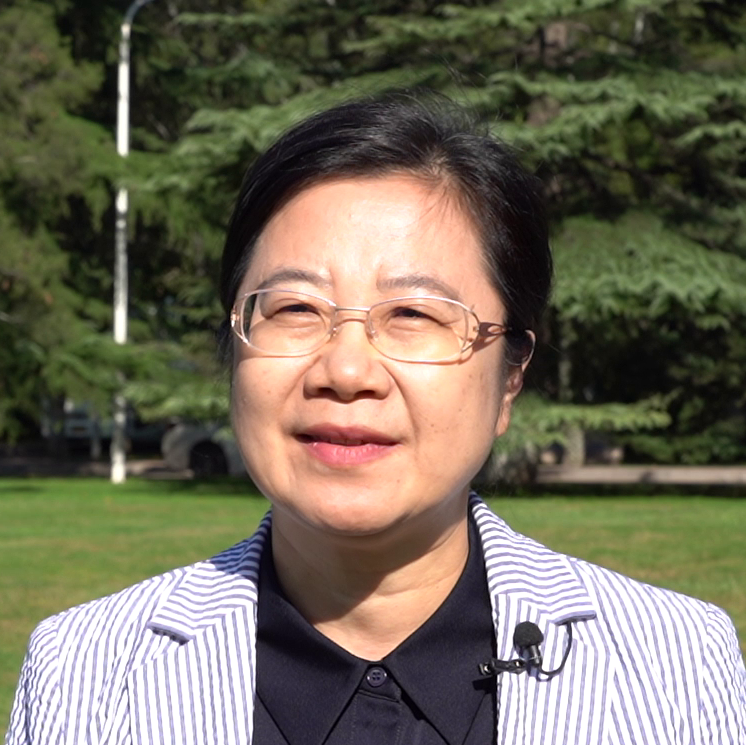
How should the concept of human development be re-conceptualized today, taking as a point of departure your work in China?
The general processes of human development are socioeconomic development, emancipative cultural change and the democratization and extension of civil rights. This can lead to human activities focusing only on what we need, regardless of the environmental carrying capacity and resulting in unsustainable human development.
Such human-centred development is a common deficiency in human development nowadays. One of the major reasons is the lack of consideration of the environmental carrying capacity for long-term development. Many essential resources (e.g. fossil fuels) are non-renewable resources but they are being unreasonably exploited. Unrestricted human activity has also caused increasing pollution, such as air, water and soil pollution, which significantly threaten the health and safety of human beings. Therefore, we must abandon the human-centred development concept, advocate for the harmonious coexistence of humans and nature, rationally develop and utilize resources, pay attention to environmental issues, and build the future of human development based on sustainable development.
Based on my experience, I have two suggestions in this field. One is the rational development and utilization of fossil energy, and the other is the development of clean energy, such as solar energy, wind energy and nuclear energy, which can not only ensure human development needs but also avoid environmental pollution. In fact, we are now promoting solar energy in the Tibetan Plateau to partly take the place of yak dung (which is burned as fuel) to protect people’s health and also the local grasslands.
This is an important message to convey, that human-centred development might actually be misleading us. Why is it a problem to isolate humans from the rest of the environment?
I would like to use the term ‘resilience’ to further elaborate on this issue. Resilience is the ability of a system to bounce back to its original status when a disturbance disappears. It should be recognized that human beings and nature are interdependent and interrelated components of the earth system with some resilience when disturbance is at low levels. Indigenous knowledge has a good understanding of the laws of nature, such as the 24 solar terms in ancient China, which still can be used to guide farming activities. However, this is not enough for us in a much more quickly changing world with much more disturbance.
Science and technology has greatly improved social productivity and liberated the labour force. For example, agricultural production can be maximized through reasonable and scientific cultivation. Scientific research can provide better seeds for planting (e.g. hybrid rice), mechanized agriculture can reduce the burden on farmers, and a diversity of agricultural products can increase farmers’ income. Furthermore, the advancement of science and technology has improved the efficiency of human labour, and the saved time can create additional value, such as agricultural product processing and work outside, which can also boost farmers’ income. Moreover, progress in science and technology can effectively track climate change and predict natural disasters, helping us to face these challenges. All these advancements have greatly improved social resilience. However, such advancements also bring problems, in terms of contributing to global warming, climatic extremes and pollution, which bring about more uncertainties in natural laws. Therefore, human development in the future should consider the effects of human activities on the natural laws.
To me, the coexistence of indigenous knowledge with science and technology is a way forward. We must obey the basic rules of being part of nature, while using our wisdom to improve living conditions. We must admit that we will never be able to live independently from the other elements of nature, such as animals, plants and even microorganisms.
You are an expert on education, and you have mentioned how the right type of education is important. How can education help us to educate people to understand their connection with nature and to better use science and technology to produce from nature without depleting the natural environment?
Education, as well as science and technology, is the foundation of human development. The significance of education for human development is reflected in two aspects. One is to increase social productivity from the perspective of production, and the other is to promote the concept of sustainable development through environmental education. For example, education can help people use natural resources more efficiently. I have found this with herdsmen in Inner Mongolia who have received knowledge through education on how to delay the grazing period to make their grass grow better, thus enabling them to have more efficient and healthier grasslands and more income from livestock. They have been able to learn from the experience of their elders and local and regional research groups. Complementing indigenous knowledge with modern science and technology will hugely improve local livelihoods while keeping them in balance with the local environment.
Environmental education may improve human awareness and participation in environmental protection, popularize environmental protection knowledge and skills, and thus help achieve sustainable development. Education is also the basic pathway for large-scale, rapid and effective dissemination of science and technology. Through education, the inheritance and innovation of science and technology can be realized, continuously developed and strengthened, and eventually effectively promote human development at no cost to the environment.
How can we make this message that the key to rearticulating human development lies in building from (rather than destroying) indigenous knowledge and culture more policy-friendly and influential?
We have talked about the knowledge and education of individuals and small communities, but what is more important is the education of society. In particular, I think we need to make efforts to enhance the environmental education of policy-makers and members of governments at national and international levels. I like the Sustainable Development Goals (SDGs) framework because it helps us think about the sustainable ‘us’, and reminds us of personal behaviour (e.g. our carbon footprint and consumption habits). Meanwhile, we need more education at all levels of society, so more and more individuals regard these different elements as an interconnected whole. Clearly, these 17 goals are not all equally important to different countries, regions or communities. But finding the goals to emphasize in a specific context and ensuring they are integrated at all levels by education can be an important way forward.
If you were to propose a new definition of human development, what would it be?
I would like to identify some words to contribute to a new definition. One is ‘harmony’, conveying the importance of dealing with the relationship between humans and nature. The second is ‘evenness’ or ‘even development’, which suggests a joint development of all aspects of the SDGs and also all regions. The third is ‘leave no one behind’, indicating that human development should benefit everyone regardless of race, gender and social class.

Yanfen Wang is a Professor of Ecology and the Executive Vice-President at the University of the Chinese Academy of Sciences. She has served as the vice chairman of the Ecological Society of China and the China Natural Resources Society, and is also an Independent Board Member of the International Centre for Integrated Mountain Development (ICIMOD).
Cover image: by Eli Cureton / USFWS via Flickr.